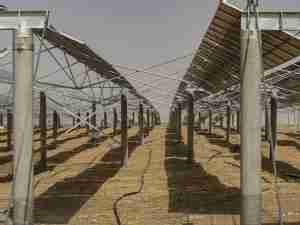The country has posted healthy export growth in recent months even though it is one of Asia's most heavily exposed to the United States and Europe, where growth is fading. But those numbers have been flattered by high oil prices and deliveries of ships under contracts awarded a few years back.
That, alongside a raft of disappointing economic data released this week, suggests the region's fourth-largest economy could be in for a harder landing than the government anticipates and likely puts any further tightening from the Bank of Korea far in the future.
"There was a lot of a inflation (in the export numbers) from the high oil prices and today's weak production data shows the weakness in exports could be just around the corner," said Jun Min-kyu, economist at Korea Investment and Securities.
Exports data released on Wednesday showed they rose 22.9 percent from a year ago for the Aug. 1-29 period, while industrial output fell 0.4 percent in July from June on a seasonally adjusted basis, bucking expectations of a 0.6 percent rise.
South Korean exports in U.S. dollar terms rose an average 22 percent in the past five months over a year earlier, but a quarter of that was a function of high oil products prices and deliveries of a few big ships, Reuters calculations show.
These temporary factors are now fading, economists say.
Prices of oil products and petrochemicals, which account for one-sixth of South Korean exports, rose almost 30 percent this year from last year and deliveries of just a few ships easily adds billions of dollars to the exports bill.
Oil products exports jumped a whopping 73 percent in value for the first seven months of the year from a year earlier, leading a robust 24 percent gain in total exports and offsetting a mere 5.5 percent rise in electronics exports.
But the outlook for the notoriously volatile oil prices is getting gloomier as big consumers like the United States and Europe are now suffering from lackluster economic growth.
"Ethylene and propylene demand growth has continued to slow as the economic outlook for the second half of 2011 is unclear with European debt issues, downgrading of US credit rating and tightening monetary policies in China and India to manage inflation," energy industry research firm Purvin & Gertz said in its latest monthly report.
"Buyers are taking bearish positions to keep inventories down," it added.
An additional drag is the weak outlook for electronics products, which account for more than one-third of South Korea's exports, as consumers in big economies show no signs of loosening their purse strings soon.
South Korean electronics exports fell 1.7 percent in July from a year earlier, scoring their first year-over-year decline in almost two years, as falling prices for computers, chips and screens failed to revive demand.
South Korea's government and central bank are confident the $1 trillion economy will keep growing because they expected robust demand from emerging countries to make up for softening in the advanced economies. Not everyone agrees.
"The decoupling theory is just like a hollow dream," said Jun, the Korea Investment and Securities economist. "Emerging economies eventually depend on the advanced economies for their growth and I don't see any big emerging country having its own growth engine."
South Korea's economy last suffered a quarterly decline in gross domestic product in the fourth quarter of 2008, which was only its second losing quarter in a decade. Even the more bearish forecasters predict the economy will continue to grow this year, albeit at a slower pace.
Should growth prospects worsen dramatically, the government could opt to pull the won down to try to boost exports, as it has done in the past. But that could stoke inflation, and the government is keen to avoid upsetting voters ahead of next year's nationwide elections. (Reuters)





